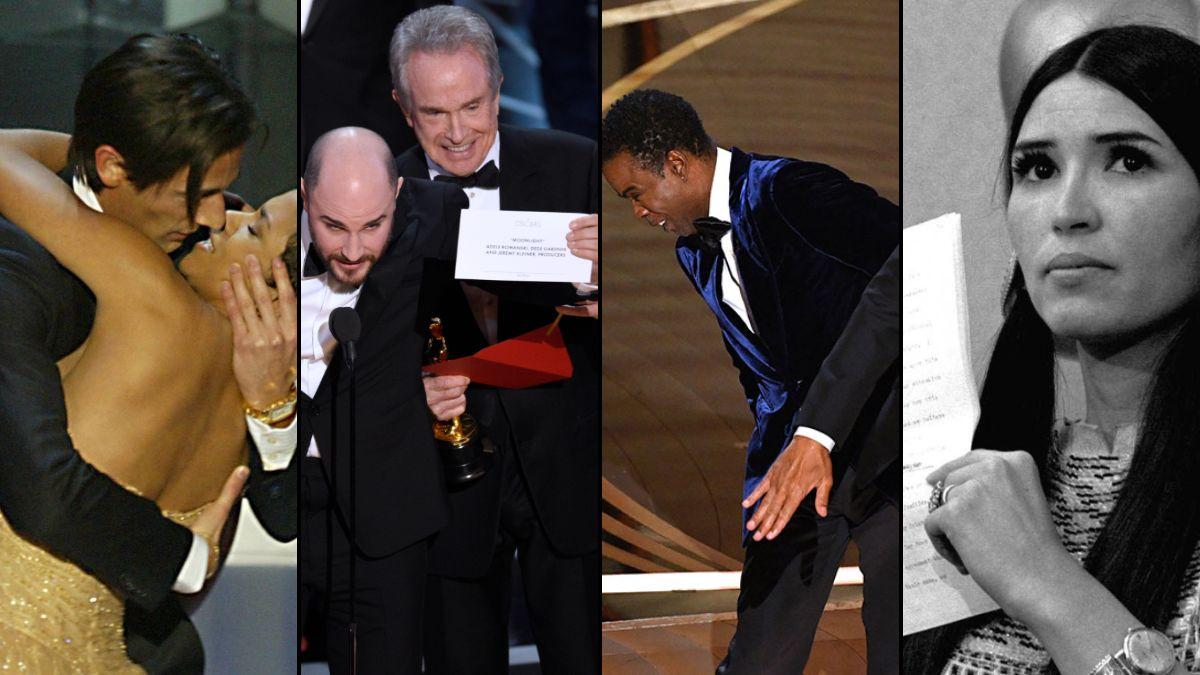
The Academy Awards’ history of unbridled controversy ahead of the Oscars 2025 Premium
The Hindu
The Oscars have long positioned themselves as the grand arbiter of artistic merit, the ultimate coronation of film prestige, but their history is as much a catalogue of cultural fiascos, tone-deaf decisions, and spectacular lapse in judgment as it is of its supposed triumphs
For an institution that loves to drape itself in the grandeur of Hollywood’s golden age and dedicate itself to celebrating the best in cinema, the Oscars have always been just a bit of a mess. The annual night at the Dolby Theatre desperately wants to be a bastion of taste and cultural significance, but more often than not, careens between self-importance and outright absurdity. For every soaring moment of career-defining triumphs, there’s a snafu, a blunder, or a jaw-dropping act of hubris to remind us that Hollywood’s biggest night is just a gilded circus for conceited clowns in couture.
Consider, for instance, the 1940 ceremony, when Hattie McDaniel became the first Black performer to win an Oscar for her role in Gone with the Wind — a momentous occasion, dampened only by the reality that she was forced to sit at a segregated table at the back of the room. The Academy patted itself on the back for its enlightened embrace of diversity, while simultaneously upholding the status quo it pretended to dismantle.
Then there was Marlon Brando’s Godfather-era snub of the establishment in 1973, when he sent Sacheen Littlefeather in his place to reject his Best Actor award as a protest against Hollywood’s treatment of Native Americans. The Academy’s response? A mix of nervous applause, outright boos, and a still-infamous moment where John Wayne had to be physically restrained from storming the stage in anger. The Academy later admitted that Littlefeather endured years of professional retaliation for her speech, only to issue a formal apology five decades too late.
Of course, no discussion of Oscar-night chaos is complete without mention of the naked man. In 1974, conceptual artist and serial streaker Robert Opel dashed across the stage behind host David Niven, flashing a peace sign to an audience that wasn’t quite sure whether to laugh or recoil. Niven quipped about the “shortcomings” of the streaker, Opel disappeared into counterculture lore and Hollywood sighed in relief that, for once, a scandal could be laughed off.
Even when the scandal isn’t quite as physically revealing, it can still manage to leave the room deeply uncomfortable. Fast forward to 2003, and it was current Best Actor nominee, Adrien Brody’s turn to make the Oscars uneasy, when he planted an uninvited kiss on Halle Berry after winning Best Actor for The Pianist. The moment was initially met with applause, but in retrospect, it aged about as well as milk left in the sun. Berry, clearly caught off guard, later admitted she had no idea how to react in the moment.
Then there are the controversies that don’t involve a single shocking moment but rather an entire obnoxious creative choice. Seth MacFarlane’s 2013 hosting gig is a prime example, with the lowest point being a musical number titled “We Saw Your Boobs,” in which he recounted topless scenes of Hollywood’s most celebrated actresses — many of which were in films depicting rape or sexual assault. The crowd laughed nervously, unsure whether they were witnessing satire or just straight-up misogyny. A decade later, the HR nightmare of a moment remains a reminder of how the industry could still, somehow, misread the room.
Some scandals aren’t about what happens onstage, but who isn’t there at all. The #OscarsSoWhite movement, sparked in 2015 after two consecutive years of all-white acting nominees, was the most damning indictment of the Academy’s lack of diversity in its whitewashed history. The hashtag trended worldwide, stars like Jada Pinkett Smith and Spike Lee boycotted the ceremony, and the Academy was finally embarrassed enough to begin overhauling its voting body to include more women and people of color. Progress has been made, but the shadow of that particular failure lingers.

Through the agency of the Federation of OMR Resident Associations, the IT Corridor now has an annual literary festival, a book reading club that is gaining in popularity by the day and regular book swap events. The IT crowd is clearly trying to honour the physical book in more ways than one. The greatest evidence of this trend is how an increasing number of gated communities on the Corridor are reserving space, time and resources for establishing a reading space. Based on their experiences, a primer on how to set up and sustain a community library












